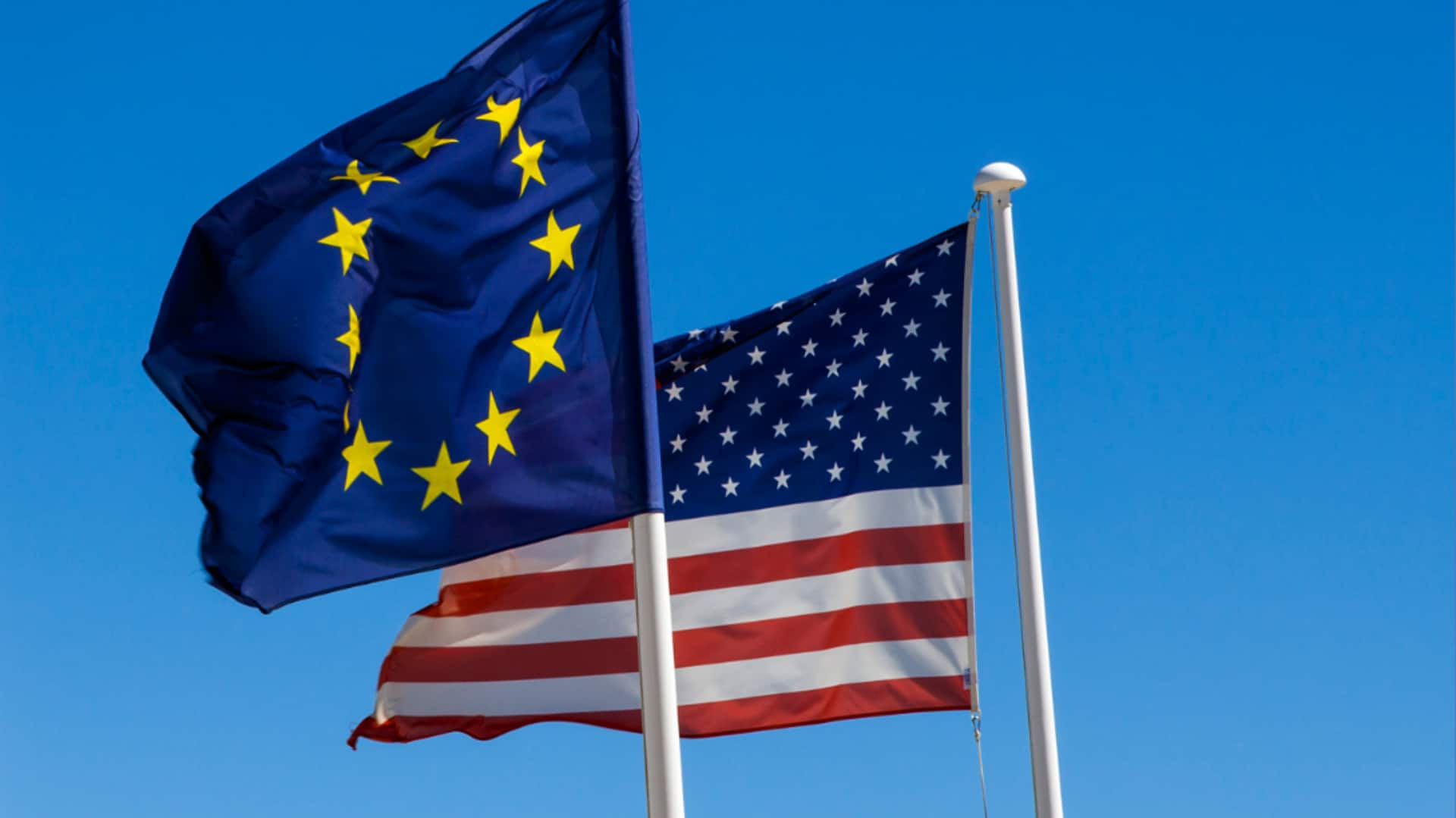Trade Imbalance Between the US and EU: A Closer Look
The trade dynamics between the United States and Europe have long been a topic of discussion, often highlighted by significant imbalances. Recently, Merz, a prominent German politician, underscored this issue during a speech focusing on the trade imbalance, particularly pointing to the US’s surplus in services trade. This attention on services points to broader themes of competition, protectionism, and the potential for change in policy.
The Services Trade Surplus
Merz’s comments draw attention to the notable surplus the US maintains in the services sector. In recent years, the United States has consistently exported more in services—ranging from technology and finance to entertainment—than it imports from European countries. This surplus showcases the strength of the American service-based economy but also raises questions about fairness and competitiveness in international trade.
Services trade, unlike goods trade, is often less visible and harder to quantify, yet it plays a critical role in economic growth. By focusing on this sector, Merz highlights the vast potential that lies within services, which could be a pivotal point of negotiation in ongoing trade talks between the US and the EU.
Protecting American Interests
In his remarks, Merz noted that "at the moment, we strongly protect US tech companies — also on taxes." This protectionism towards technology companies underlines a strategic intent behind US trade policies. The emphasis on safeguarding American companies reflects broader national interests, particularly in the technology sector, which has become a cornerstone of the modern economy.
Merz’s statement alludes to the complexities of trade negotiations, where domestic policies can significantly impact global market dynamics. While he acknowledges this form of protection might be re-evaluated, he also expresses caution, indicating a desire to avoid escalating tensions between the two economic giants. This sentiment reveals the fine line policymakers must navigate—balancing national interests with the need for cohesive international trade relations.
The Role of Ursula von der Leyen
The dialogue surrounding trade between the US and EU is further underscored by Merz’s endorsement of European Commission President Ursula von der Leyen’s approach to the negotiations. Von der Leyen has been instrumental in shaping the EU’s stance in trade discussions, advocating for a robust yet fair framework that addresses the concerns of European industries while maintaining healthy relations with the US.
Merz’s support illustrates a united front among European leaders as they engage in these critical discussions. The unity in leadership can potentially enhance the EU’s bargaining power, fostering a more favorable outcome for European businesses. With von der Leyen at the helm, the EU seeks not only to confront the trade imbalance but also to ensure that future agreements are conducive to mutual growth and innovation.
Navigating Future Trade Talks
As the US and EU prepare for ongoing trade dialogues, the comments made by Merz provide crucial insights into the complexities of international trade. The imbalance in services trade, coupled with protective policies in the US, sets the stage for a contentious, yet necessary, negotiation process.
Both sides face a pivotal moment where they must find common ground despite contrasting economic philosophies. The path forward will require diplomacy, understanding, and perhaps a rethinking of how each economy values different sectors of trade. With leaders like Merz and von der Leyen at the forefront, there is hope for constructive dialogue that addresses these trade disparities while promoting a collaborative economic environment.
In this evolving landscape, the emphasis on services trade, protective measures, and unified European leadership will undoubtedly continue to shape the trajectory of US-EU relations in the coming months and years. The challenge remains not just in recognizing these disparities, but in actively working towards a balanced and fair trade framework that benefits both sides of the Atlantic.


